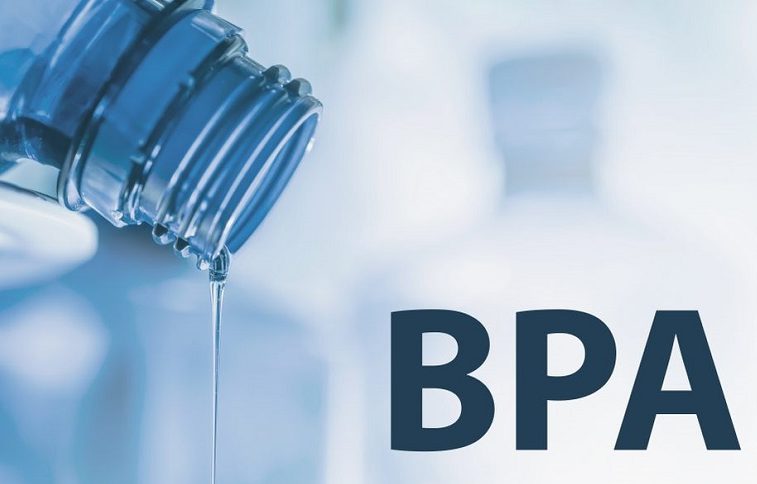
We live in a world where plastic is used for so many things. From foods and beverages to toys and electronics, it seems like just about everything is wrapped in plastic these days. While plastic may make certain processes more convenient and inexpensive, its negative impact on our health and the global environment cannot be ignored. A growing body of research now suggests that BPA in water bottles and other food containers can lead to a range of health problems. BPA, or Bisphenol A, is a chemical commonly used in many consumer products. Read on to learn more about the dangers of BPA and how you can avoid exposure going forward.
How BPA May Affect Your Health
Plastic water bottles and food storage containers tend to be made of polycarbonate, which is a more durable and flexible type of plastic. This type of plastic can contain large amounts of BPA, which scientists now link with various diseases and defects in humans. As polycarbonate plastic comes into contact with water, it can release BPA into your food and drinks. Lab tests have linked a variety of human health problems to BPA, including a higher risk for certain cancers, diabetes, obesity, birth defects, and impacts on fertility. The toxicity of BPA has led manufacturers to use alternative chemicals and advertise their new and improved products as “BPA-free.” However, research is ongoing and suggests that these alternate chemicals may have similar negative health effects as BPA.
Drawbacks of Plastic Water Bottles
When you stroll down the aisles at your local store, you might be overwhelmed at all the options for water bottles. While plastic water bottles are inexpensive and easy to find, they do have drawbacks that you want to consider. Plastic water bottles come in both disposable and reusable types, though you may want to avoid both options. Disposable water bottles are bad for the environment, and while they are marketed as recyclable, billions of these bottles end up in landfills each year. Plastic waste like water bottles even end up in our oceans, which can harm marine animals.
In addition to the environmental effects, disposable water bottles may not actually contain higher quality drinking water. In fact, the water may come from public sources like your municipal water supply and may not even be filtered. Bottled water can sit in these disposable plastic containers for weeks or even months at a time, and exposure to heat can cause BPA and other plastic toxins to leach into the water. Reusable water bottles made of plastic can also shed these harmful chemicals into your drinks, meaning you could be drinking chemicals that can get into your bloodstream and negatively impact your health.
How to Avoid BPA Exposure
BPA and plastic are everywhere, but there are ways you can avoid unnecessary exposure for you and your loved ones.
Skip the disposable plastic bottles
Avoid disposable plastic bottles whenever possible. The water in disposable plastic bottles is typically less regulated than your local tap water. Disposable plastic bottles do more harm than good for your body and the environment.
Check your products for harmful ingredients
Before purchasing a reusable water bottle, check out the ingredients and be on the lookout for any harmful toxins. It is also worth noting that BPA and other toxic chemicals are not always listed on packaging ingredients, which can make it difficult to know where you may be exposed. You can look up whether BPA is in your food and drink packaging online before purchasing a product.
Avoid plastic storage options for food and drink
Reduce the risk of harmful toxins in your food and drinks by avoiding plastic storage options whenever possible. Instead, consider products made of glass, silicone, or stainless steel. The longer a food or drink sits in a plastic container that contains BPA, the higher the chances of it getting into your bloodstream.
Beware of “BPA-free” advertisements
Ongoing research is still needed to assess whether or not BPA-free alternative plastics can have negative effects on our health. Instead of trusting these BPA-free advertisements, invest in plastic alternatives with toxic-free materials.
Benefits of Glass Water Bottles
Consider glass water bottles for your safe alternative to plastic and its potentially harmful chemicals. Glass water bottles have a wide range of benefits that make these receptacles worth the investment.
Free of Chemicals & Contaminants
Glass water bottles do not leach any chemicals, which makes them a safe choice for your drinking water. These water bottles do not retain contaminants or residual tastes of other beverages you may have stored, either. The type of glass used in glass water bottles is typically thicker than you might expect, which also makes it safe from cracks or drops.
Keeps Drinks Clean and Fresh
Glass water bottles keep your drink clean and fresh, so you don’t have to worry about the impact on taste. While plastic and metal water bottles can leave a funky taste to your water, glass does not. In fact, glass water bottles help preserve the fresh taste of your water so that it is always fresh, pure, and delicious.
Easy to Clean
Washing glass water bottles is easy, and you don’t have to worry about the quality going down over time, unlike with plastics. Glass water bottles can go in the dishwasher and be exposed to high heat without the risk of melting or degrading. Cleaning your glass water bottles will not affect the structure or integrity of your reusable glass bottles.
Environmentally Friendly
Glass can be recycled repeatedly without damaging its integrity, which helps keep it in use and out of landfills. Plastic bottles end up in landfills or even water sources, and this type of material is less sustainable. Glass water bottles are more environmentally friendly because all types of glass are recyclable, and most glass manufacturers use recycled glass to make new products.
Learn more about how you can avoid harmful toxins like BPA in your water by investing in glass water bottles and signing up for home water delivery services with Lipsey Water.
